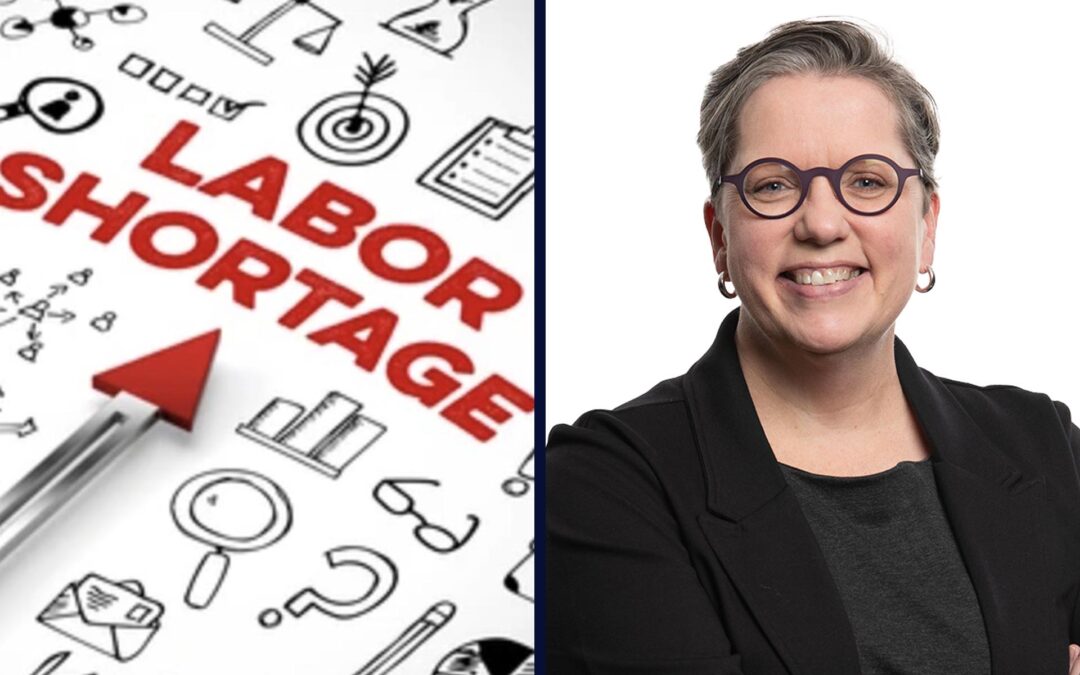By Anne Kress, NOVA
The third annual Northern Virginia Workforce Index reveals a region mirroring the struggle of many major metropolitan areas: a booming economy but a persistent talent shortage.
Companies are hiring, but workforce availability is a challenge that traditional methods of sourcing and qualifying talent are failing to meet. Over 60% of the Index’s survey respondents identified an overall shortage of interested or available candidates as the key barrier.
While we might think breaks in the talent pipeline impact only “big name” employers, the workforce shortage affects the entire ecosystem. Almost half of Virginians are employed in small businesses, which constitute over 99% of employers in the Commonwealth. The lack of a qualified and available workforce impacts quality of life locally: neighborhood shops and services, new and longtime entrepreneurs, and the small- and medium-sized enterprises that form an essential and critical supply chain for larger employers are all challenged by the talent gap.
Our market has many candidates who would be ideal for persistently vacant positions, though businesses won’t find them if they don’t change how and where they look. It’s time to rethink our approach.
Most employers rely on word-of-mouth, online job boards, and/or social media. Few are using internships and apprenticeships, two methods of recruiting and retaining a workforce that have long proved to be effective.
Since the pandemic, enrollment in NOVA’s short-term, industry-recognized credential program, Fast Forward, has grown by double digits annually. These students are telling us the idea of spending two years in college, let alone four, is unrealistic and unwelcome. Employers who are ready to make the skills-based hiring shift will find a stronger and growing talent pipeline. They benefit, and so do the employees, who, on average, increase their earnings by about 79% thanks to their Fast Forward credentials.
Employers should consider something else: Think outside the degree.
In today’s market, in-demand skills hold high value: In their responses to the Northern Virginia Workforce Index, 60% of employers say a candidate’s formal education is not important in making hiring decisions. Yet, most of these same employers identify bachelor’s degrees as very important or essential even to entry-level positions. In fact, Northern Virginia job postings are more likely (32%) to require a bachelor’s than are national postings (22%).
A move to skills-based hiring, even in part, would immediately widen the talent pathway and begin to close the workforce gap for our region and country. When employers remove what Opportunity@Work calls “the paper ceiling” of a four-year college degree, the pool of talent expands dramatically. More than 70 million adults in the U.S. are what Opportunity@Work deems “STARS“: individuals skilled through alternative routes who do not hold a bachelor’s degree. They comprise fully 50% of the U.S. workforce.
Across the country, largely in response to the lingering labor shortage, there is a national trend towards relaxing education and degree requirements to emphasize skills-based hiring instead. The Burning Glass Institute and Harvard Business School call it “the emerging degree reset,” and note it has the potential to greatly expand the labor market.
NOVA is the largest public higher education institution in Virginia and the largest provider of talent in the region. Our students have outstanding GPAs and a drive to succeed; they have completed internships, clinicals, and fieldwork; they have triumphed in the essential skill of time management; they are leaders on campus and in the community; many are military veterans, making them eligible for security clearances; and state data shows that 81% of Virginia’s community college students will stay in the Commonwealth after they graduate. Yet, the results of the 2023 Northern Virginia Workforce Index suggest despite their ongoing challenges in sourcing and retaining talent, employers are looking past these individuals time and time again.
The charge to employers is clear: change where and how you look for talent, the way you assess candidates, and how you partner with institutions dedicated to skilling, reskilling, and upskilling workers in the fastest-growing fields. Seize the opportunity to think differently about your current, future, and potential workforce. Think outside the degree.


Recent Comments